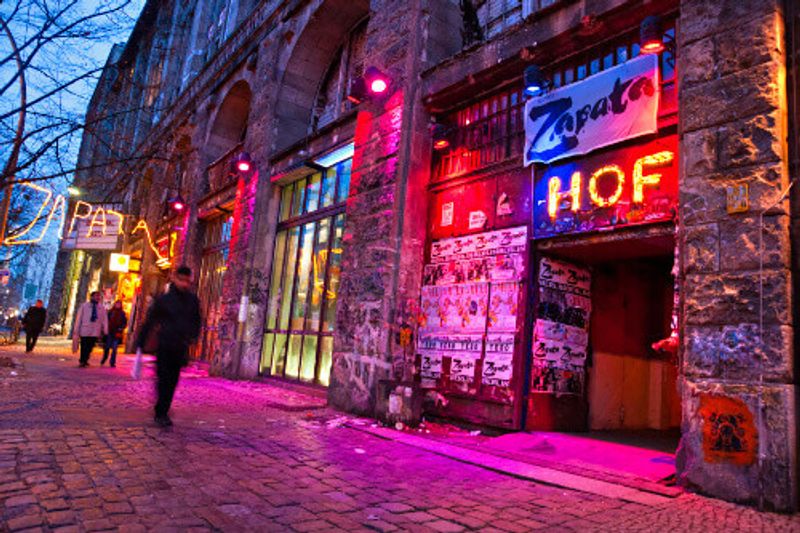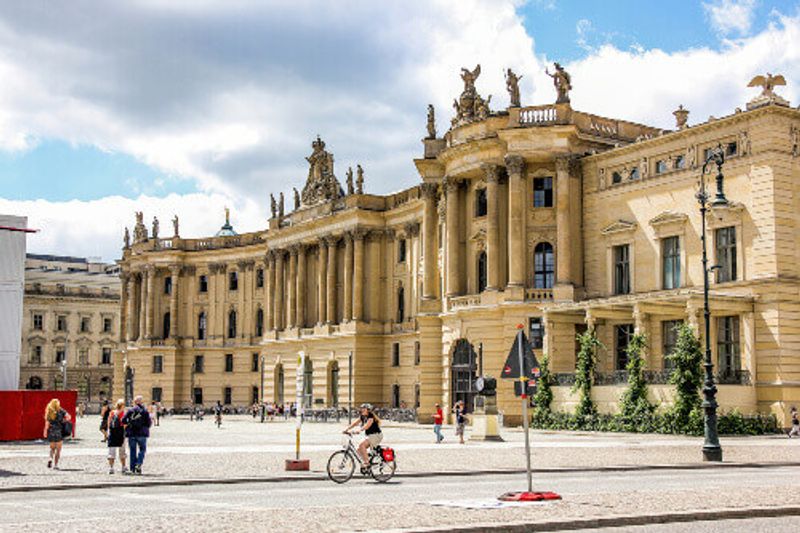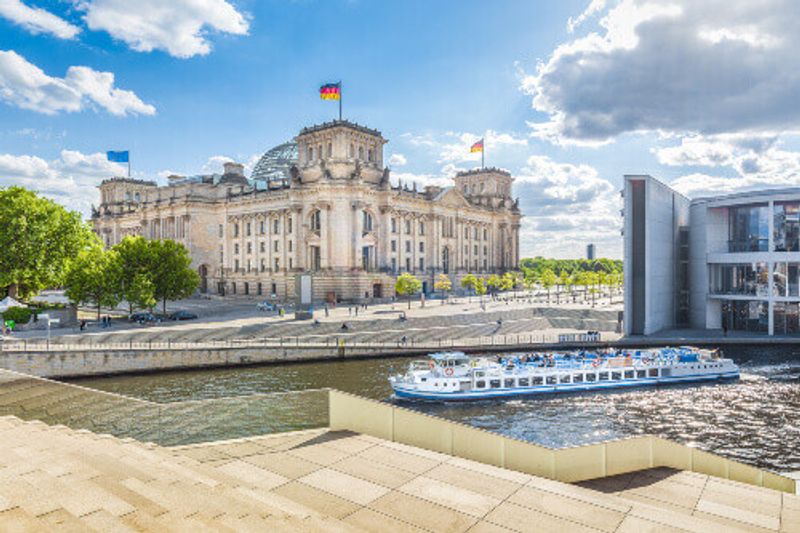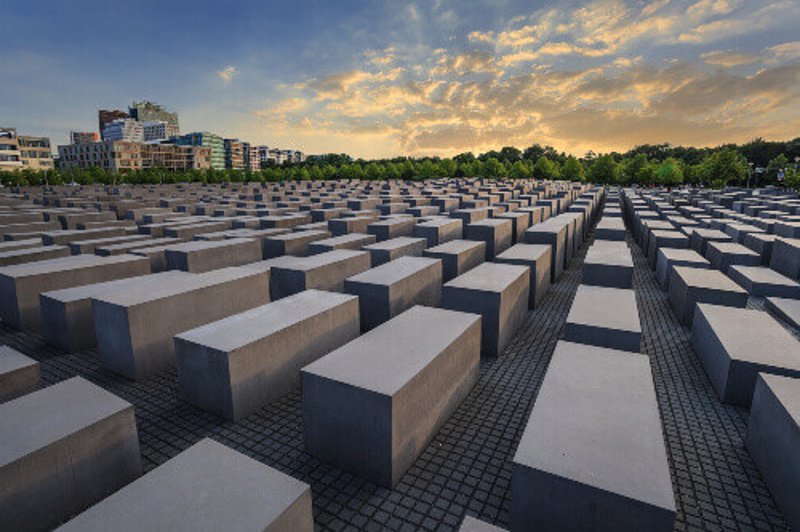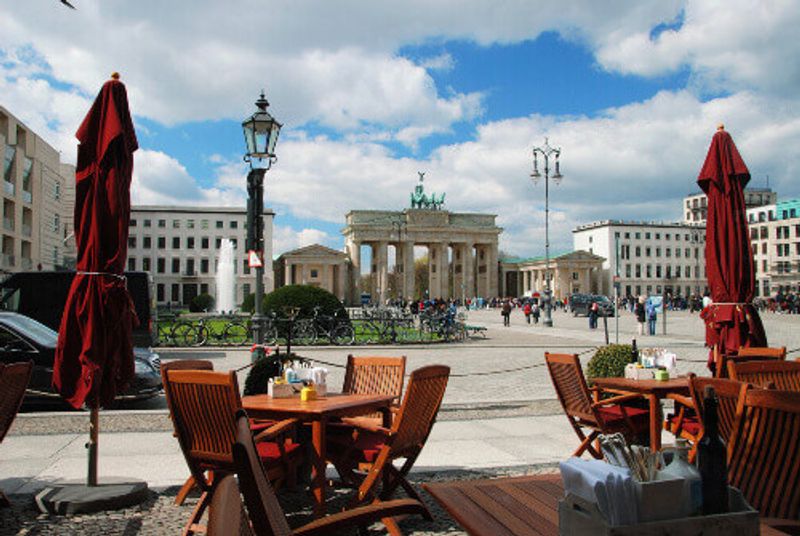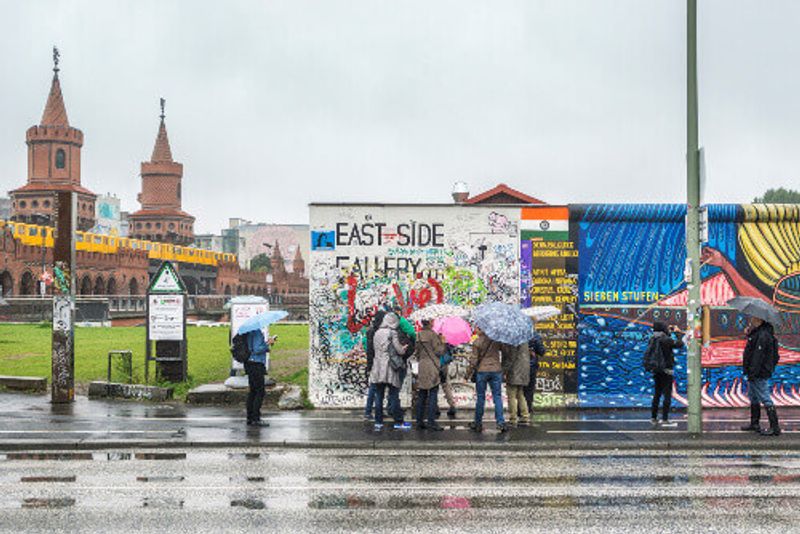The capital of cool maybe home to some of the world’s funkiest bars and restaurants but it’s also jam-packed full of history from centuries ago to the present day
Germany’s capital city has a real eclectic feel to it. Its history, as the centre of the Nazi Germany for the first half of the 20th century and the physical dividing line between Capitalist West and Communist East for much of the second half of the century, has shaped both its physicality and psychology.
The fantastically liberal city is also wonderfully affordable so it attracts people from all walks of life and from all corners of the earth, who bring with them their cuisines and their cultures. Berlin’s low cost living has attracted students and entrepreneurs. It’s melting pot of cultures has made it an international hub for artists and musicians. Students from around the world come to the capital to learn not only languages and cultures but politics, history and how to protect our future.
This edgy young population have helped create one of the nightlife scenes on earth. And for musicians and contemporary artists – Berlin is currently the hot place to be.
The town itself is still divided by the Spree, which in summer acts like an urban beach attracting students and locals to park themselves on its banks to picnic and sunbathe. Most of the city’s government buildings, museums and more elegant neighbourhoods are found in the West of the city, while the East that plays host to more avant-garde galleries, affordable restaurants and trendy night spots.
Although a big city, much of the historically important sites are found in the middle (Mitte) which can easily be explored on foot.
Right in the heart of the government district is the Reichstag Building, where German Parliament meets under the famous glass dome. There is a fantastic restaurant on the roof terrace of the building, offering stunning views right across the city.
Around the corner is the Holocaust Memorial – a place of contemplation and remembrance consisting of 2,711 concrete columns laid out in a grid pattern. People can walk into from any angle into the 19,000 sqm space immersing themselves in the mass of plinths that surround them.
Carry on a little further and one of Germany’s most famous landmarks can be seen. The 18th-century neo-classical Brandenburg Gate was one of the original gateways into the city and was inspired by the monumental gateway at the entrance to The Acropolis in Athens.
The Berlin Wall, which was built in 1961 and mostly demolished after reunification in 1989, can still be seen at a number of places including the East Side Gallery – where artists from all over the world have painted on the Wall. However, no trip to Berlin is complete without visiting the infamous Checkpoint Charlie – the most notorious crossing point between the Allied West and the Soviet East – that still acts as an open air museum.
If all that history is a bit intense then the Tiergarten is a welcome break. This huge park (and former royal hunting ground) is full of memorials, beer gardens and cafes from which to watch the world go by or perhaps try Berlin’s famous Currywurst. A delicious dish of chopped up sausage topped with a tomato sauce and curry powder - yum.

